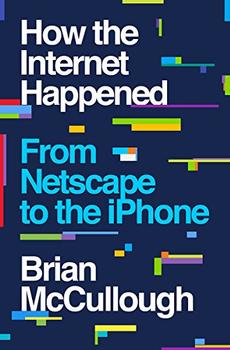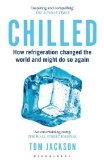Summary | Excerpt | Reviews | Beyond the book | Read-Alikes | Genres & Themes | Author Bio

The 500-Year Story of How Our Houses Became Our Homes
by Judith FlandersPerhaps not surprisingly, Judith Flanders opens her history of the concept of "home" with a quote that will be well known to many: Dorothy's assertion in The Wizard of Oz that "there's no place like home." The idea of home for many modern readers is as familiar, comfortable, and lived-in as our homes themselves: home is (ideally) a place where we can be safe, surrounded by family, entirely ourselves. "Home," as Robert Frost once wrote, "is the place where, when you have to go there, they have to take you in." What might surprise readers of Flanders's history, however, is just how recent and malleable these ideas of "home" really are, bound up in relatively modern ideas about work, consumerism, the division of labor, and the rise of industrialism, among many, many other things.
Flanders, a British journalist and author whose previous books have focused on the daily lives and homes of residents of Victorian England, in addition to others, focuses her expansive narrative primarily on Europe and, although it may sometimes seem like an afterthought to American readers, the United States. She opens her volume by pointing out that the idea of "home" originated in northern European countries like Germany and the Netherlands, whose languages developed separate words for "house" and "home" in a way that the Romance languages of Spain, France, and Italy did not. She calls the northern European countries "home countries" and the Southern ones "house countries," and throughout her history, which stretches from the early modern period to the twentieth century, she examines ways in which the different cultures of these countries contributed to differing attitudes toward home and family life, from the styles of architecture they preferred, to the relative age of men and women when they married.
Throughout, Flanders notes how difficult it can be to research or understand what everyday houses and homes were like over the centuries; the versions of "home" we see depicted in classic works of art, for example, were often idealized, and there has been little impetus, historically, to preserve humble homes for posterity (she offers the particularly stark example of the incredible scarcity of authentic examples of slave quarters in the American South). She's clearly done her research, though, and the result is an energetic, if, at times, sprawling history that touches on everything from cleaning methods to eating implements to styles of dress for children.
That's not to say, however, that The Making of Home is unfocused or disorganized; rather, Flanders uses her individual chapters to offer numerous examples of the various goods, social structures, and philosophies that helped establish the idea of home. In one chapter, she shows how, over time, the notion that "a woman's place is in the home" evolved alongside the Industrial Revolution and paralleled the shift of wage-earning from within the home to a distant shop or factory. In other chapters, she illustrates how building a home is tied up with the notion of accumulation of consumer goods (and points out that the kinds of creature comforts we expect in our homes, from tables to beds, wouldn't have been taken for granted just a couple centuries ago). She also examines how architectural styles, particularly in the nineteenth century, seemed to appeal to a sense of misplaced nostalgia for some kind of past ideal of "home" that never really existed.
Obviously, Flanders's focus on western Europe and America means that the book leaves out a huge chunk of the world's development of attitudes toward home. Perhaps those histories can and should be written by someone else. For now, though, it's pretty enjoyable to leaf through Flanders's energetic and thoroughly readable history, which will leave readers viewing their own homes with new eyes and pondering anew what - carefully chosen consumer goods, a healthy family life, or a more indefinite "feeling" - makes a house a home.
![]() This review was originally published in The BookBrowse Review in October 2015, and has been updated for the
October 2016 edition.
Click here to go to this issue.
This review was originally published in The BookBrowse Review in October 2015, and has been updated for the
October 2016 edition.
Click here to go to this issue.

If you liked The Making of Home, try these:

by Brian McCullough
Published 2018
Tech-guru Brian McCullough delivers a rollicking history of the internet, why it exploded, and how it changed everything.

by Tom Jackson
Published 2016
The refrigerator may seem mundane nowadays, but it is one of the wonders of twentieth-century science - lifesaver, food preserver, social liberator.
Your guide toexceptional books
BookBrowse seeks out and recommends the best in contemporary fiction and nonfiction—books that not only engage and entertain but also deepen our understanding of ourselves and the world around us.